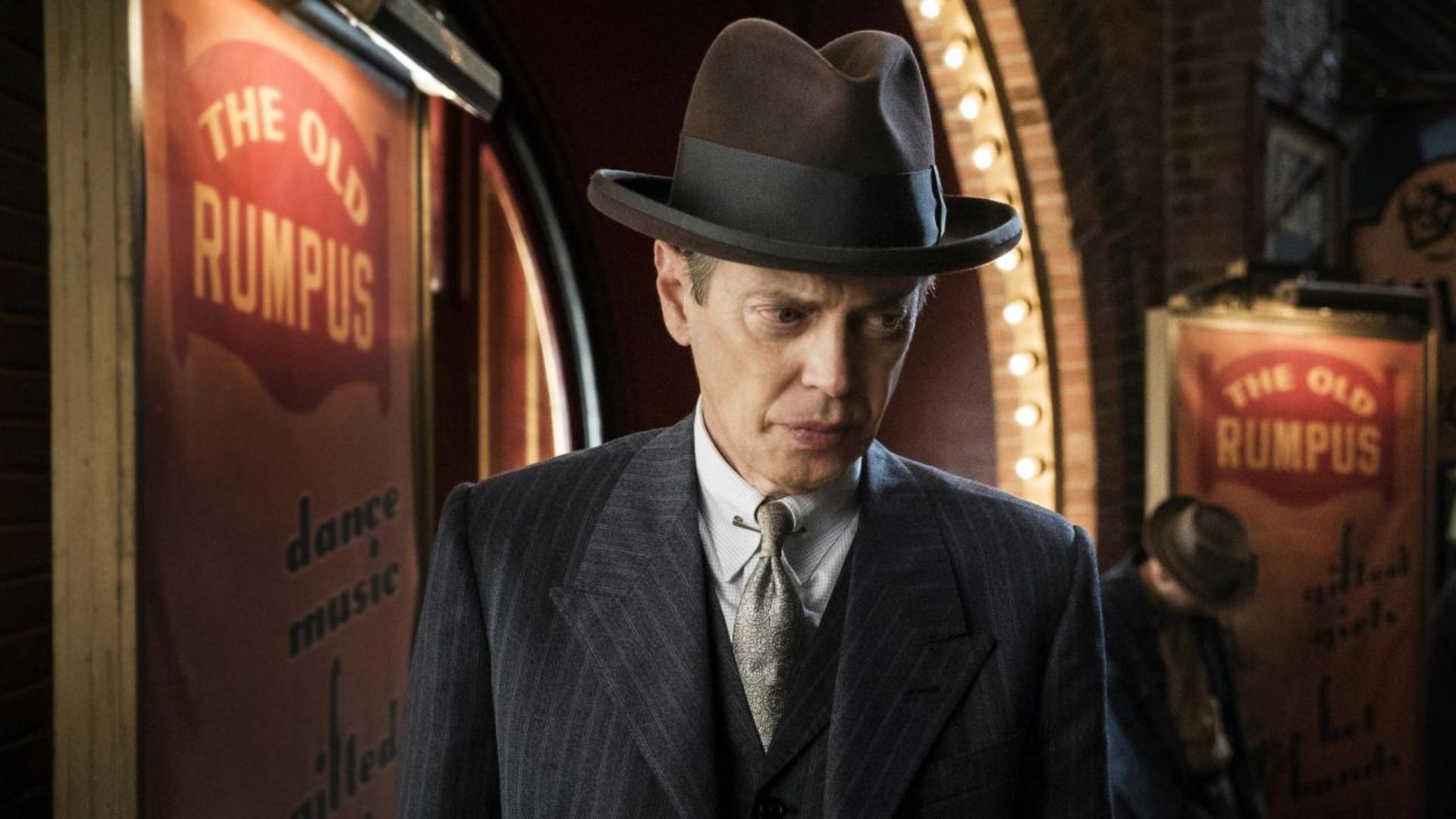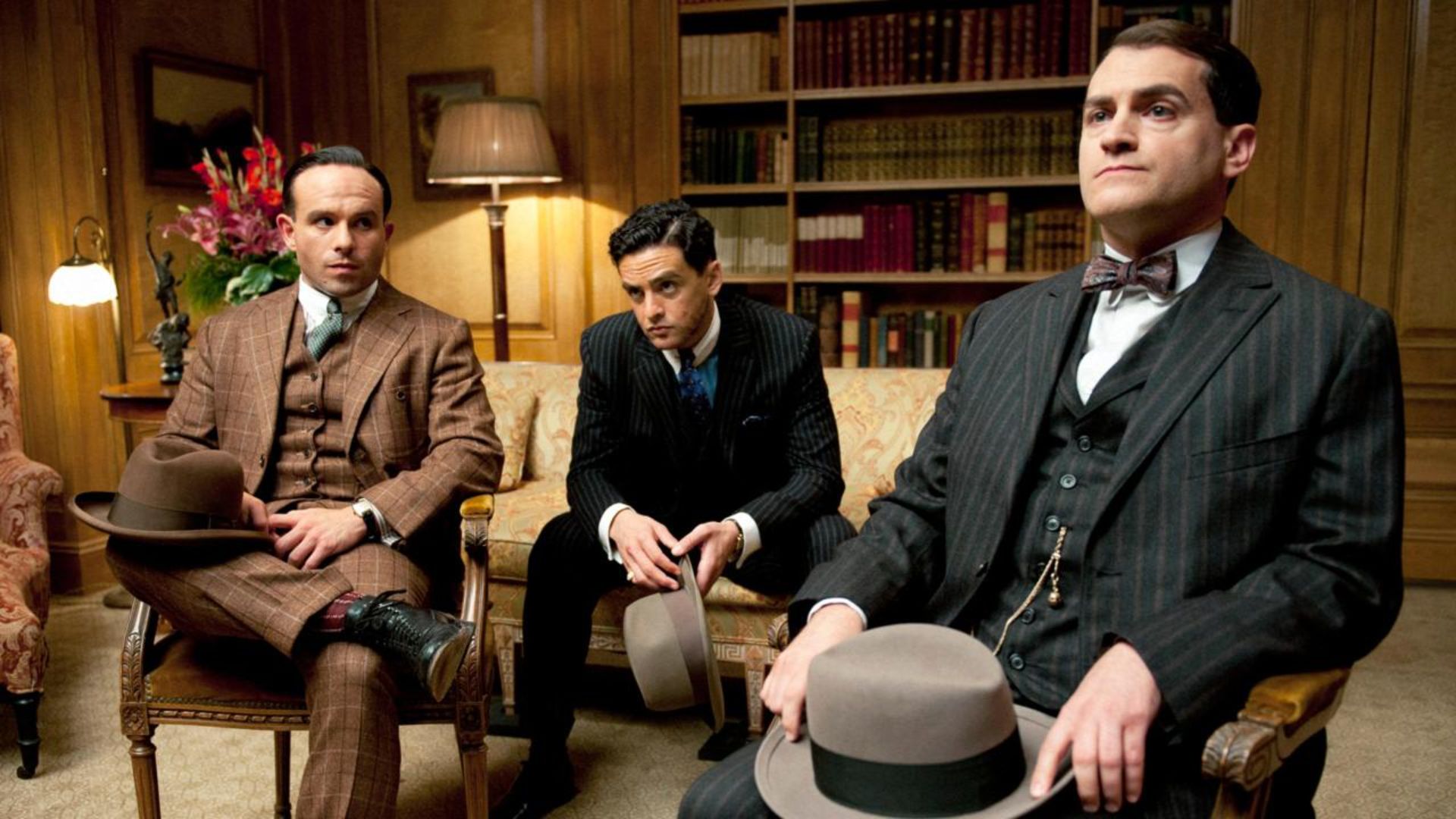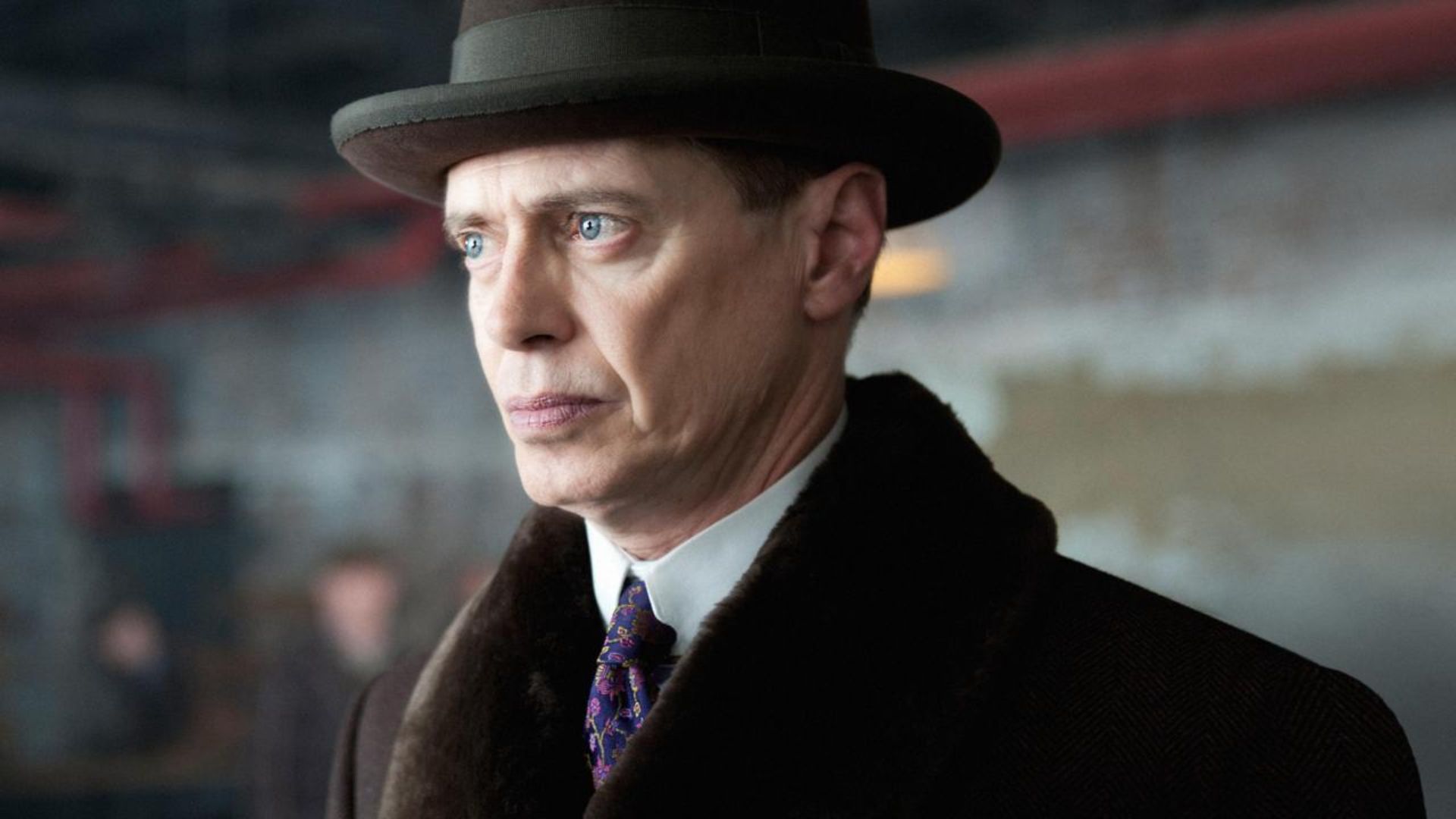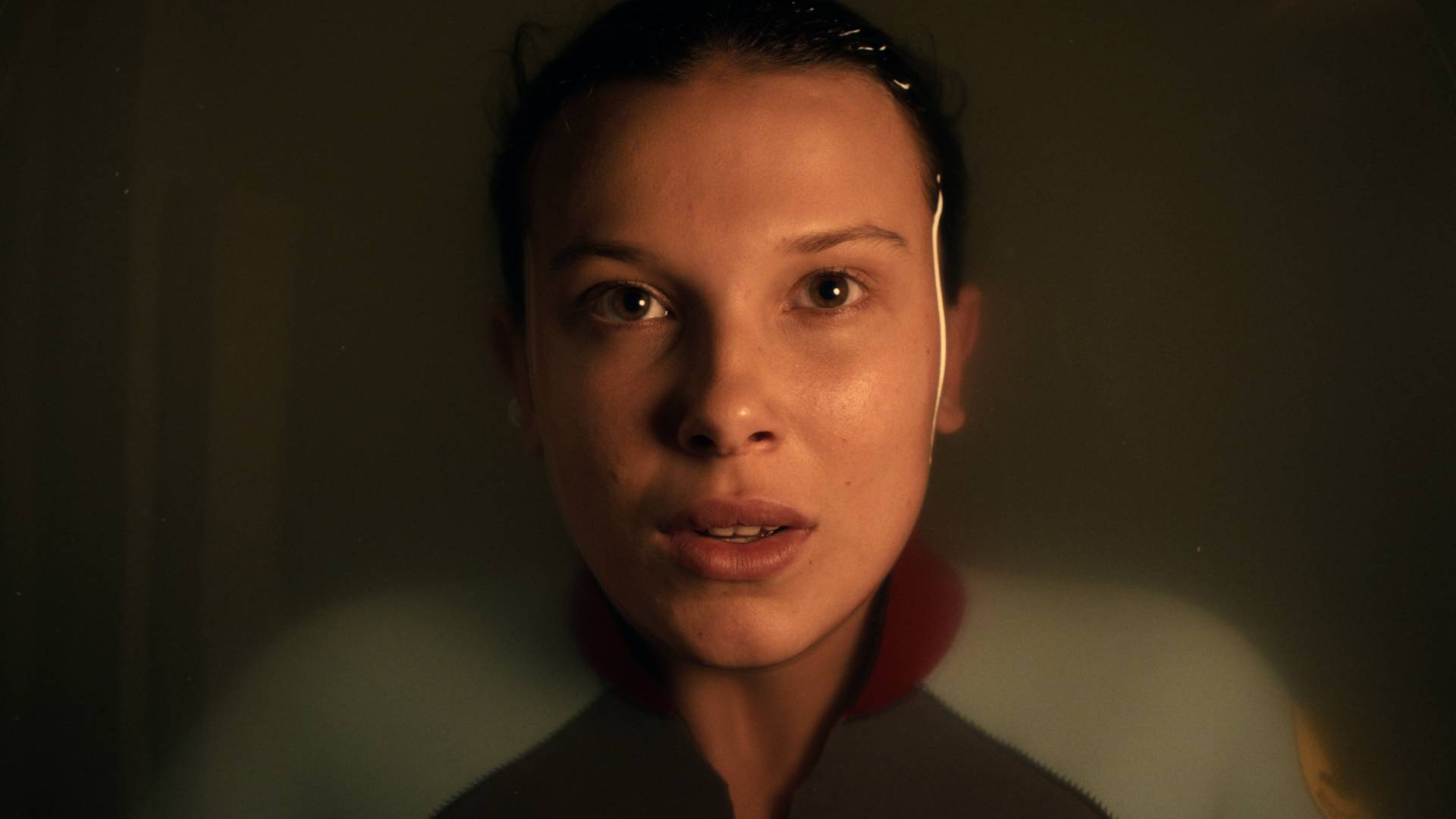10 years after its finale, it's time to admit Boardwalk Empire belongs alongside The Sopranos and Breaking Bad as one of TV's GOATs
Opinion: One GamesRadar+ writer on why the Prohibition-era HBO show deserves to be on TV's Mount Rushmore

Ask any TV diehard for their picks for the best shows of all time and a familiar refrain will ring out: The Sopranos, The Wire, and Breaking Bad typically duke it out to be top dog, with some shouts for the likes of Deadwood thrown in for good measure.
Since then, many pretenders to the throne – Game of Thrones, Better Call Saul, and Succession, to name but a few – have been and gone, each making their own indelible mark on the television landscape. But, 10 years on from its finale, it's time to give one of the golden era's forgotten sons its flowers. Yes, it's Boardwalk Empire that deserves its place as part of the canon alongside the rest of the greats carved into TV's Mount Rushmore.
After all, not many projects could begin with a Martin Scorsese directing credit and only get better from there. But that's exactly what happened with Boardwalk Empire, the Prohibition-era HBO drama starring Steve Buscemi as Nucky Thompson, an unscrupulous bootlegger in the beachside town of Atlantic City.
Home to all manner of pleasures – including whatever tipple takes your fancy in an America recently tapped out dry by the Volstead Act – the seaside-set series is anchored throughout by a formidable performance from Buscemi that is proof enough of just how overlooked Boardwalk Empire is.
As strong and as well rounded as James Gandolfini's big bear of a mob boss or Jon Hamm's name-stealing schmoozer from Madison Avenue, Buscemi's Nucky Thompson is a wildly complex lead that not only instantly elevates the show, but every plot and character that enters his gravity.
Buscemi is, at once, terrifying, romantic, snivelling, and a master politicker with a true Machievellian bent. A true acting tour-de-force, Nucky has one trick that others of his ilk doesn’t: he loses. And loses frequently. As fascinating as it is to see his tricksy sleights of hand run rings around mobsters from New York all the way down to Florida, it's Boardwalk Empire's ability to poke and prod at an atypical leading man in Buscemi, and see him rise up again from nothing partway through seasons (and even episode-to-episode) that is most compelling.
Drink it in

Despite Nucky Thompson almost being hooked off the Boardwalk stage so many times, it's the moments where he bounces off the great and the not-so-great of early 20th Century American history (including Al Capone, 'Lucky' Luciano, and Arnold Rothstein) where the series truly sings.
Bringing all the latest movie news, features, and reviews to your inbox
A hero is only as good as its villain and, in Boardwalk Empire's case, a show and a lead is only as good as its supporting cast. Nucky's hard-headed brother Eli (Shea Wigham), one-time Prohibition advocate Margaret Schroeder (Kelly Macdonald), and Nucky's war-ravaged protege Jimmy Darmody (Michael Pitt) – who fills his head with all sorts of wild aspirations – are each painted richly enough for them to be able to carry the series as and when required. A note, too, for Michael Shannon's Nelson Van Alden, a religious 'Prohi' agent whose arc quickly descends into madness and farce, probably standing alone as one of the past decade-and-a-half's funniest characters and appears to be the living embodiment of the meme featuring SpongeBob surrounded by dark, dank, and scum-covered walls. There are wild rides, and then there are Nelson van Alden's wild rides.
From there, others drop in – including Charlie Cox's perma-charming Owen, the physically and mentally wounded Richard Harrow (Jack Huston), and Stephen Root's absurd investigator Gaston Means. And that's without mentioning its delicious villains, such as Jeffrey Wright's despicable Doctor Narcisse and – in a one-season stormer – Bobby Canavale as the easy-to-anger Gyp Rosetti. Throw these world-class actors and characters together, and you already have the makings of a good time. But, on top of that, Boardwalk Empire's writing propels it into all-timer territory.
The likes of Breaking Bad understood the value of backing dangerous people into unwinnable situations but, in my view, Boardwalk takes it even further. There is no set structure in the HBO series: major events, violent acts, and deaths can – and do – happen out of nowhere. That approach to interrupting form and rhythm means Boardwalk Empire is anything but predictable – a charge that can be levied against most dramas.
Take, for example, Boardwalk Empire's first two seasons. If you're watching for the first time, you'll be almost certain where it's all going and which characters are being nudged into more prominence. Then – bam. It's all gone. While I won't spoil exactly what happens, the second season's finale is a sudden shock to the system that threatens to uproot the whole show in the same way The Leftovers' ‘International Assassin’ or Lost's ‘Through The Looking Glass’ does. Only the greats can have the confidence to even think of such a twist – let alone follow it through.

All told, Boardwalk Empire is a potent concoction of what made that era of prestige television so watchable. It is a pitch-perfect alchemy of all that came before it; it marries the in-depth character study of Mad Men with the guns-and-gangsters peril of HBO's crime dramas, alongside the experimental dream sequences and episodes that made The Sopranos such a success (it should come as no surprise, then, that Boardwalk Empire creator Terence Winter was a huge creative force on The Sopranos, while Steve Buscemi directed one of its best entries in 'Pine Barrens').
The only mark against it – a shorter final season and those Nucky flashbacks – actually work even better upon a rewatch, giving the present-day scenes some extra emotional heft while also tying off the series' few remaining loose ends.
Speaking of loose ends, its final moments, too, are as satisfying as The Sopranos' fade to black or Walter White's gun-mounted comeuppance. A perfect full circle moment that actually feeds into the themes of the series rather than simply existing for shock value? Chef's kiss.
Like many, I have my own personal list of best TV shows tucked away as a 'break glass in case of emergency' if ever cornered at a party and forced to talk about literally anything. For me, it's always been Mad Men, with The Wire and The Sopranos as interchangeable runners-up. Sometimes, I'll throw in Damon Lindelof's post-grief masterpiece The Leftovers as a wildcard pick.
Now, it's time to drink it in: Boardwalk Empire, with its exceptional lead and cast navigating us through a beautifully violent period of US history, belongs up there with the best of them. It really is one of the greatest shows of all time.
For more, check our separate rankings of the 100 best TV shows of all time. Then take a look ahead to the new TV shows coming your way for the rest of 2024 and beyond.
I'm the Senior Entertainment Writer here at GamesRadar+, focusing on news, features, and interviews with some of the biggest names in film and TV. On-site, you'll find me marveling at Marvel and providing analysis and room temperature takes on the newest films, Star Wars and, of course, anime. Outside of GR, I love getting lost in a good 100-hour JRPG, Warzone, and kicking back on the (virtual) field with Football Manager. My work has also been featured in OPM, FourFourTwo, and Game Revolution.



